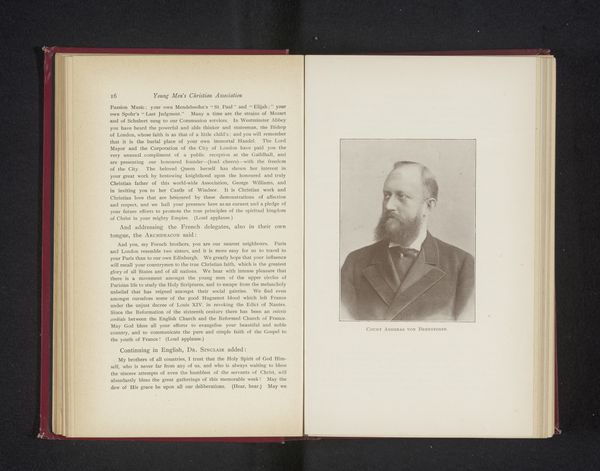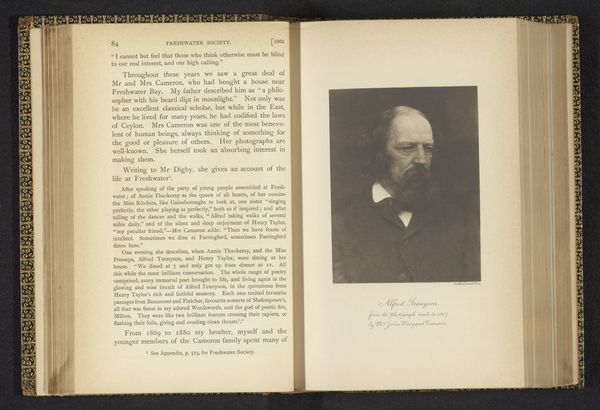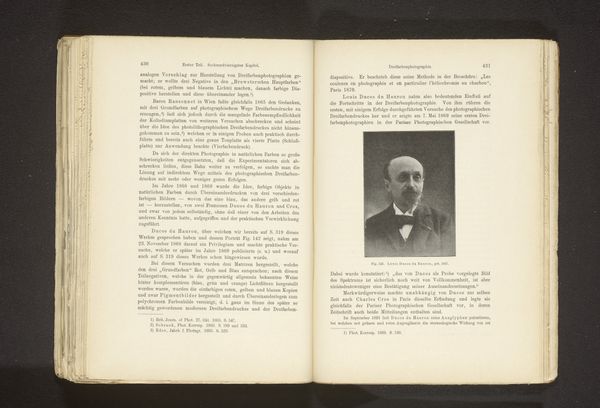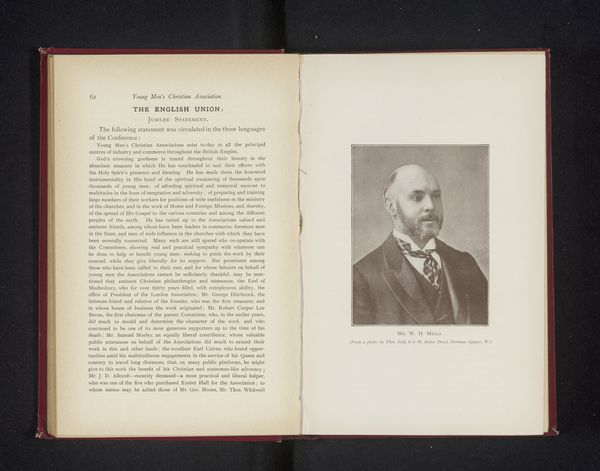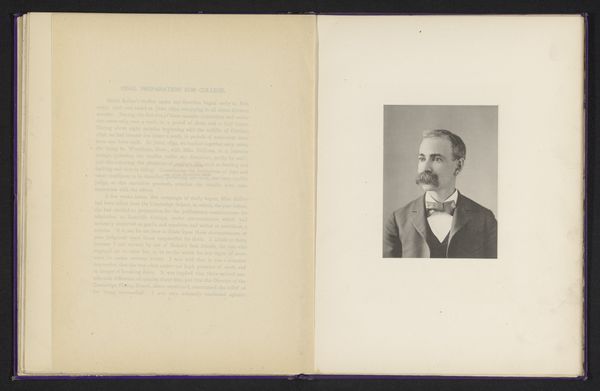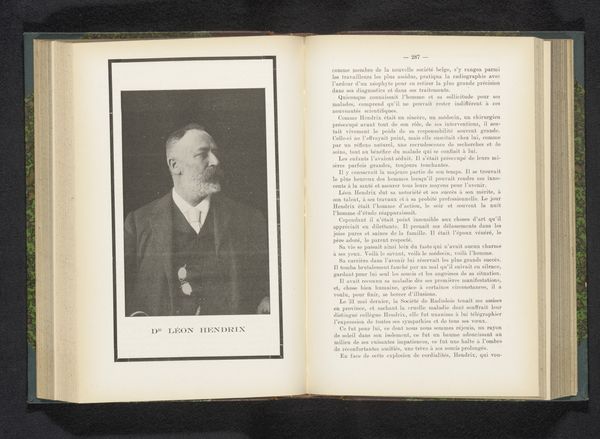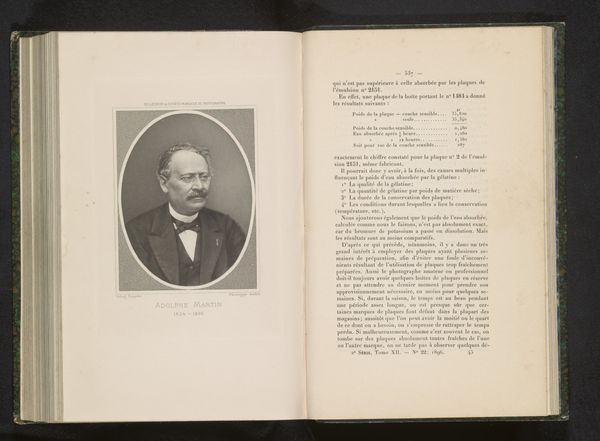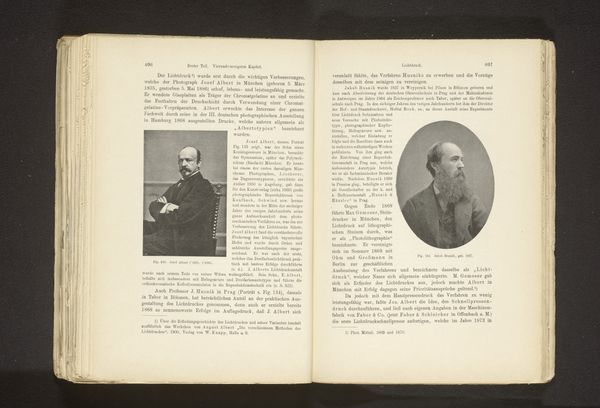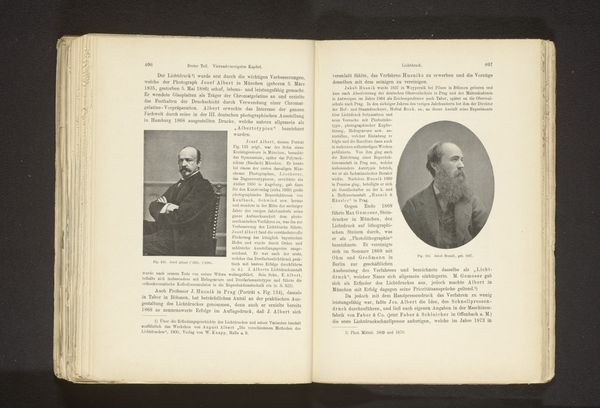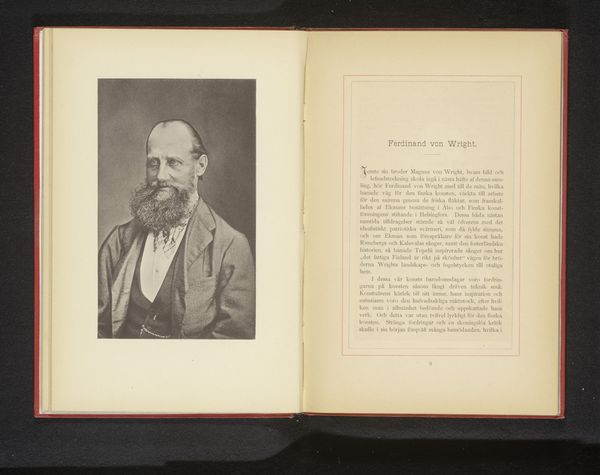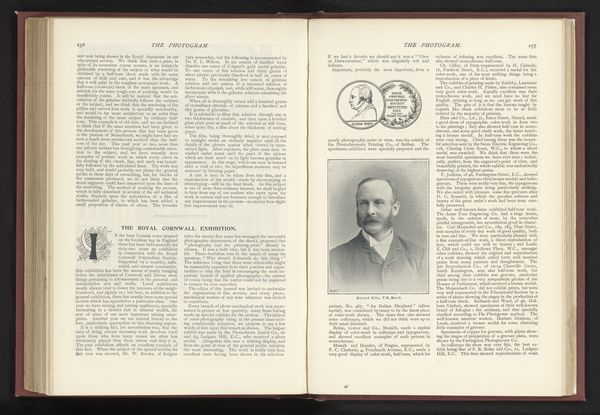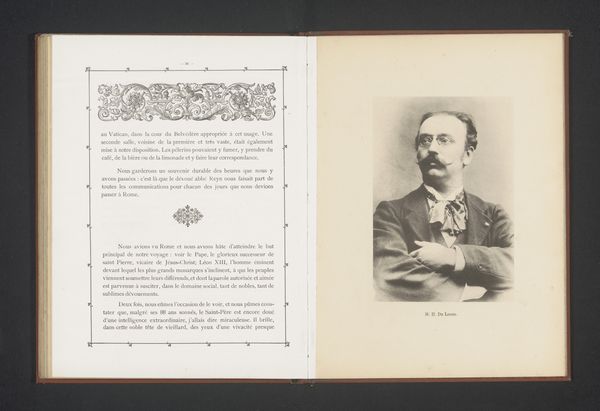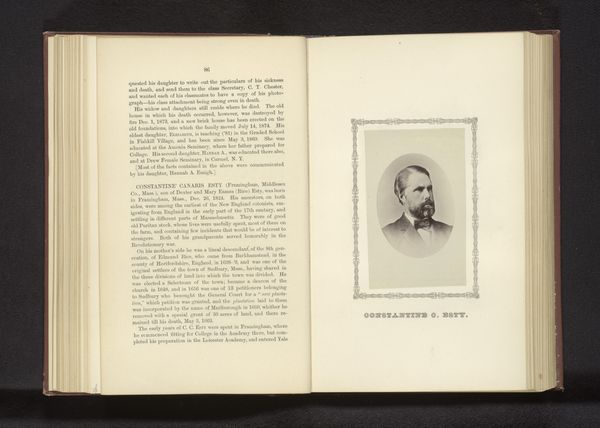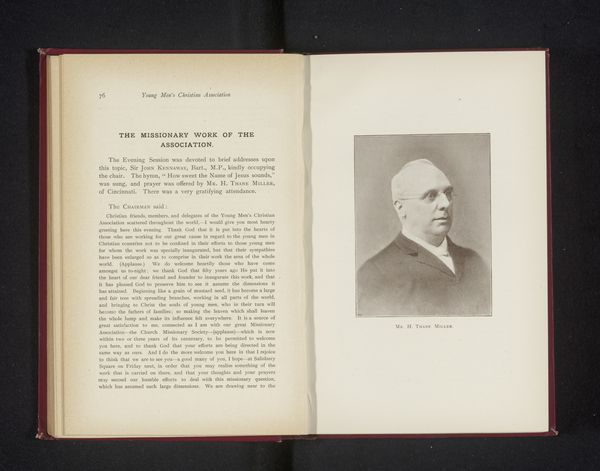
print, paper, photography
#
portrait
# print
#
book
#
paper
#
text
#
photography
#
paper medium
Dimensions: height 101 mm, width 69 mm
Copyright: Rijks Museum: Open Domain
Editor: Here we have a spread from what appears to be a book, and on the right page there is a print of "Portret van Robert Heller," dated before 1897. The print itself seems quite formal and perhaps a little mysterious, given the subject. How do you interpret this work within its historical context? Curator: That's a keen observation. Let's think about what it meant to immortalize someone in print during that period. Who was Robert Heller, and what did he represent to society? Given the title of the book’s chapter, "Mental Magic," Heller likely occupies a liminal space: performer, illusionist, perhaps even a figure who challenged the very nature of reality. Does the context change how we understand the portrait's formality? Editor: Absolutely. Knowing he was involved with "mental magic," the formality feels almost like a constructed persona. Like a magician creating an illusion! Curator: Exactly. It asks us to consider how identities, particularly those that existed outside traditional social norms, were both curated and perceived. How much of this portrait is Heller, and how much is a carefully constructed illusion meant to tantalize the public? Think about the power dynamics at play: the magician versus the audience, the individual versus societal expectations. Editor: So, we are considering representation and power here. It makes me think of the gaze - who is looking at whom, and what expectations or stereotypes might they be imposing? Curator: Precisely! This image invites us to unravel the layers of performance, identity, and perception within a historical frame, prompting us to think critically about representation, then and now. It certainly challenges us to question what we perceive to be 'real.' Editor: That's a fascinating way to look at it; I'll never see a simple portrait the same way again. Curator: That’s the beauty of art history; it's never just about what we see, but what we learn to question.
Comments
No comments
Be the first to comment and join the conversation on the ultimate creative platform.
